Tea has been an integral part of Vietnamese tea culture for centuries, deeply ingrained in the traditions and everyday life of the Vietnamese people. This rich culture encompasses a wide array of customs, ceremonies, and practices that revolve around the consumption and appreciation of tea. Let’s delve into the intricate world of Vietnamese tea culture to understand its significance, rituals, and the diverse tea varieties that contribute to this esteemed tradition.
The Significance of Tea in Vietnamese Culture
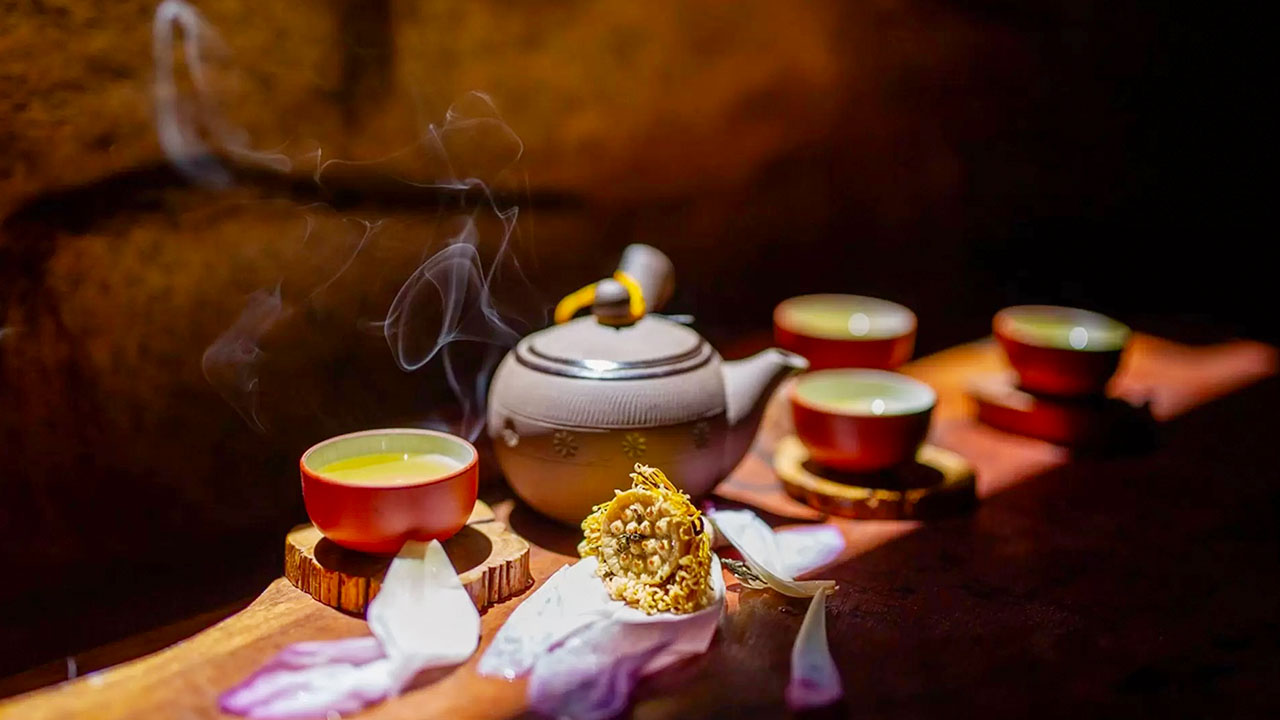
Tea holds profound cultural significance in Vietnam and is deeply woven into the fabric of daily life. The act of tea drinking is not only a customary practice but also an embodiment of hospitality, respect, and social cohesion. Whether it’s enjoying a cup of tea with family, friends, or esteemed guests, the ritual of sharing tea fosters warmth and conviviality.
When did the culture of drinking tea appear?
The Vietnamese tea drinking habits has been started since the period of 13th to 15th century. In the past, it was believed that tea could help improve one’s character, polish one’s manner, and assess one’s personality. Thus, reading book and drinking tea had been chosen by most of Vietnamese scholars back then since it was thought that the habits could achieve enlightenment and peace of mind. Through times, tea gradually has its own place in everyday life of Vietnamese living either in the city or in the countryside.
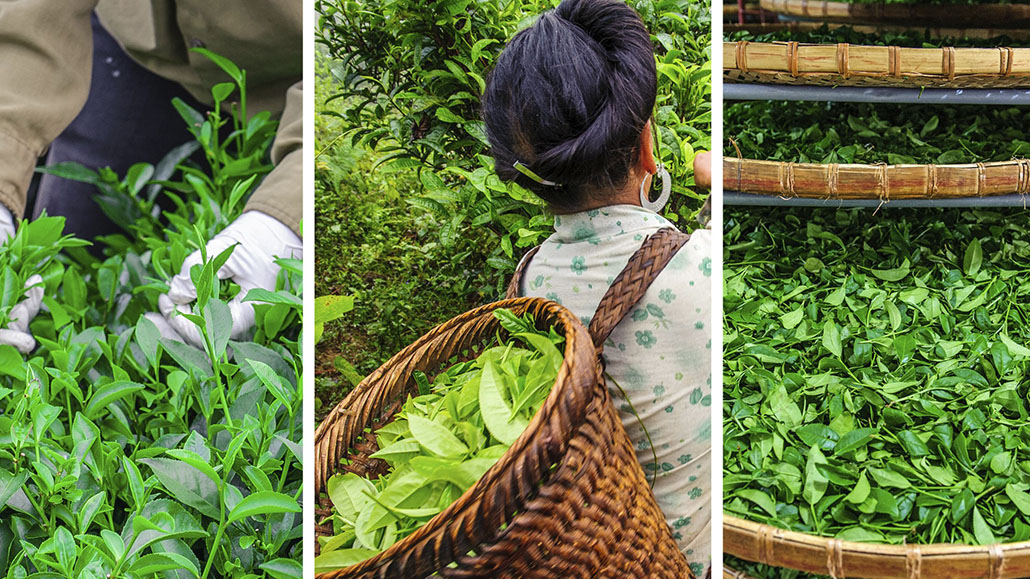
Not only at home but also on the street, Vietnamese do drink tea. Tea is sold commonly in “quán cóc” – the street vendors – which can easily be found in many Hanoi corners. “Quán cóc” with hot or iced green tea is an interesting piece of Vietnamese street culture, where people, especially workers and students, often come to have some rest in short breaks of utterly exhausted working time, waiting for friends or for picking up children after school. “Quán cóc” connects people, from strangers they become friends, sharing stories and hearing latest news happening while smoking cigarettes or having some peanut candy.

Recently, young Hanoian have had a new trend: gathering around and drinking fresh lime tea – “trà chanh”. A few plastic short-legged stools, a small dish of roasted sunflower seed, and certainly, a glass of “trà chanh” for each; those are enough to have a great time with friends at a very low price. The most boisterous and exciting place to drink “trà chanh” is at the area around Saint Joseph Cathedral or in Dao Duy Tu street (A corner of Hanoi’s Old Quarter), where you will get a chance to have a close approach to daily life of young Hanoian life style.
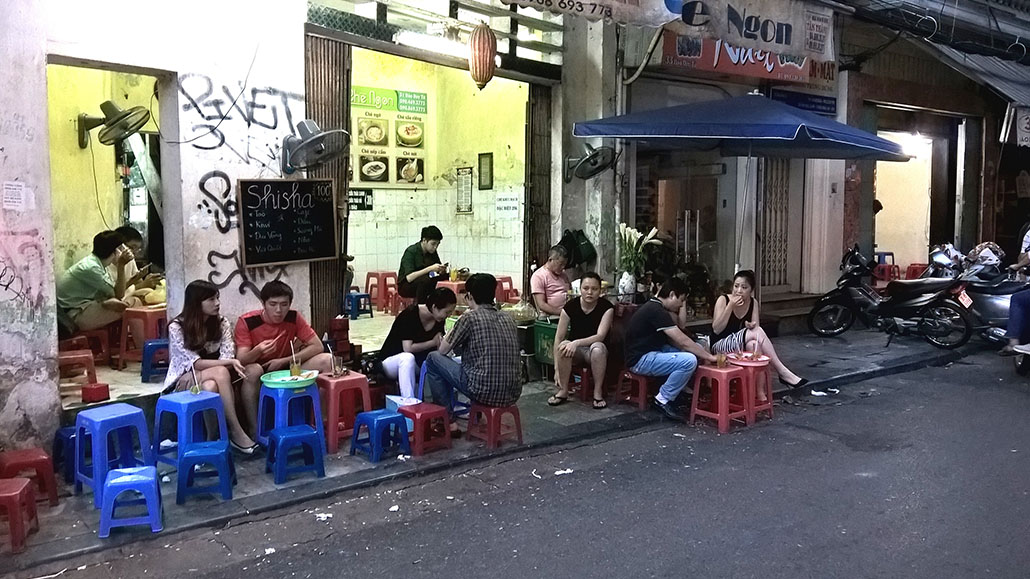
It takes about 2 minutes to walk from Duong’s Restaurant to the Saint Joseph Cathedral then you can enjoy a cup of “trendy” Trà Chanh.
Vietnam’s Stature as a Premier Tea Producer
Vietnam stands as a prominent figure in the global tea industry, renowned for its prowess in tea production. The country’s favorable climate and diverse topography provide an ideal environment for cultivating an array of tea varieties, ranging from robust black teas to delicate floral blends. As a result, Vietnam’s teas are not only cherished domestically but also sought after in international markets.
Diverse Tea Varieties of Vietnam
Vietnam boasts a rich tapestry of tea varieties, with different regions cultivating their own unique blends. This includes the renowned green tea, bold black tea, fragrant perfumed teas, and teas adorned with vibrant, aromatic flowers. Each variety reflects the distinct terroir and cultural nuances of its region, offering a diverse spectrum of flavors and aromas.
Rituals and Practices of Vietnamese Tea Culture
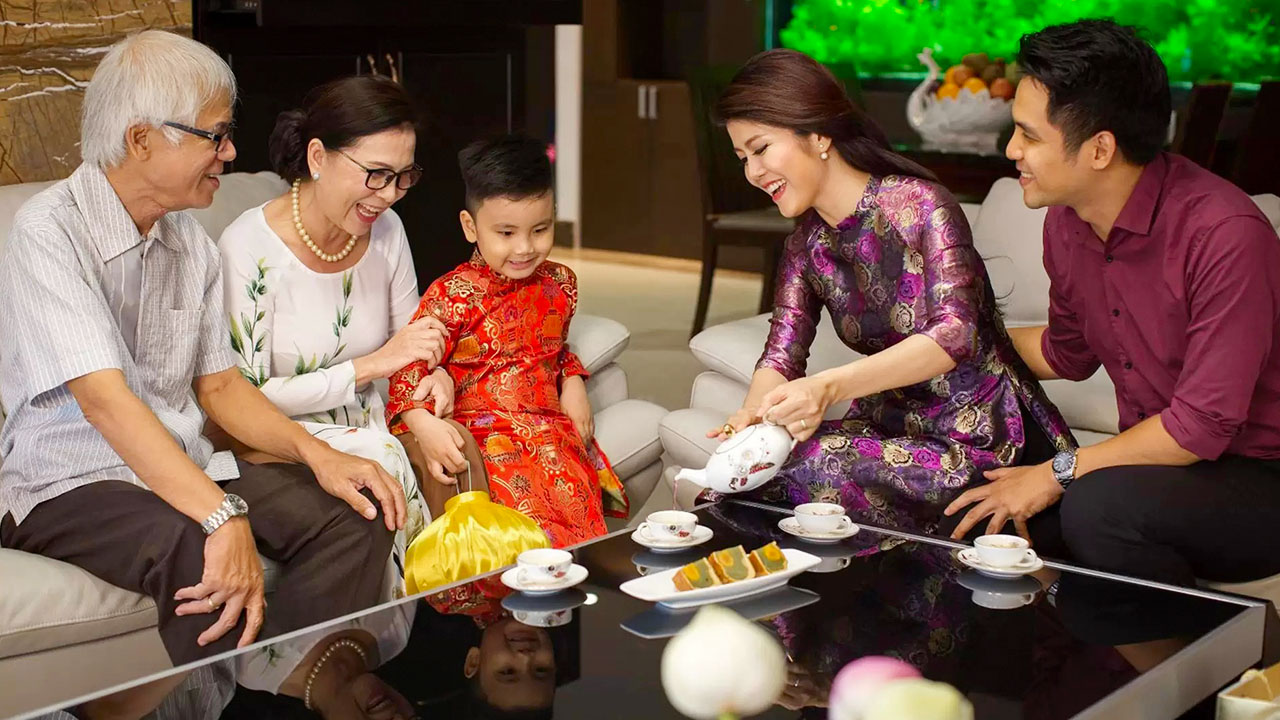
The art of preparing and serving tea in Vietnam is steeped in age-old rituals and practices, where every step holds special significance. From the meticulous brewing process to the elegant presentation of the tea, every aspect is carefully orchestrated to honor the tradition and elevate the tea-drinking experience.
Medicinal and Therapeutic Attributes of Tea
In Vietnamese culture, tea is valued not only for its delightful taste but also for its medicinal properties. It is cherished for its ability to provide relief from the sweltering heat in Vietnam’s humid climate and to offer warmth during the colder seasons. The act of savoring tea is intertwined with well-being and harmony, embodying a holistic approach to health and relaxation.
Embracing Tea with Intangible Values
Vietnamese tea culture encompasses intangible values such as tranquility, respect, and contemplation. It provides a sanctuary for individuals to pause, reflect, and engage in moments of mindfulness. Whether partaken alone or shared with others, tea becomes a conduit for fostering inner peace and a deeper connection with oneself and the surrounding world.
The Role of Ethnic Minorities in Tea Cultivation
Ethnic minority communities in Vietnam have been pivotal in the cultivation of tea, nurturing the land and passing down traditional techniques through generations. Their unique contributions to Vietnamese tea culture have provided an avenue for cultural exchange and scholarly exploration, shedding light on the profound heritage imprinted within tea cultivation and consumption.
Noteworthy Tea-Producing Regions in Vietnam
Vietnam’s rich geographical diversity has led to the emergence of notable tea-producing regions, each renowned for its distinctive tea offerings. One such region is the enchanting Lamdong highlands, celebrated for producing an exquisite range of teas that captivate aficionados with their refined flavors and exceptional quality.
Lotus-Scented Tea: A Cultural Tradition
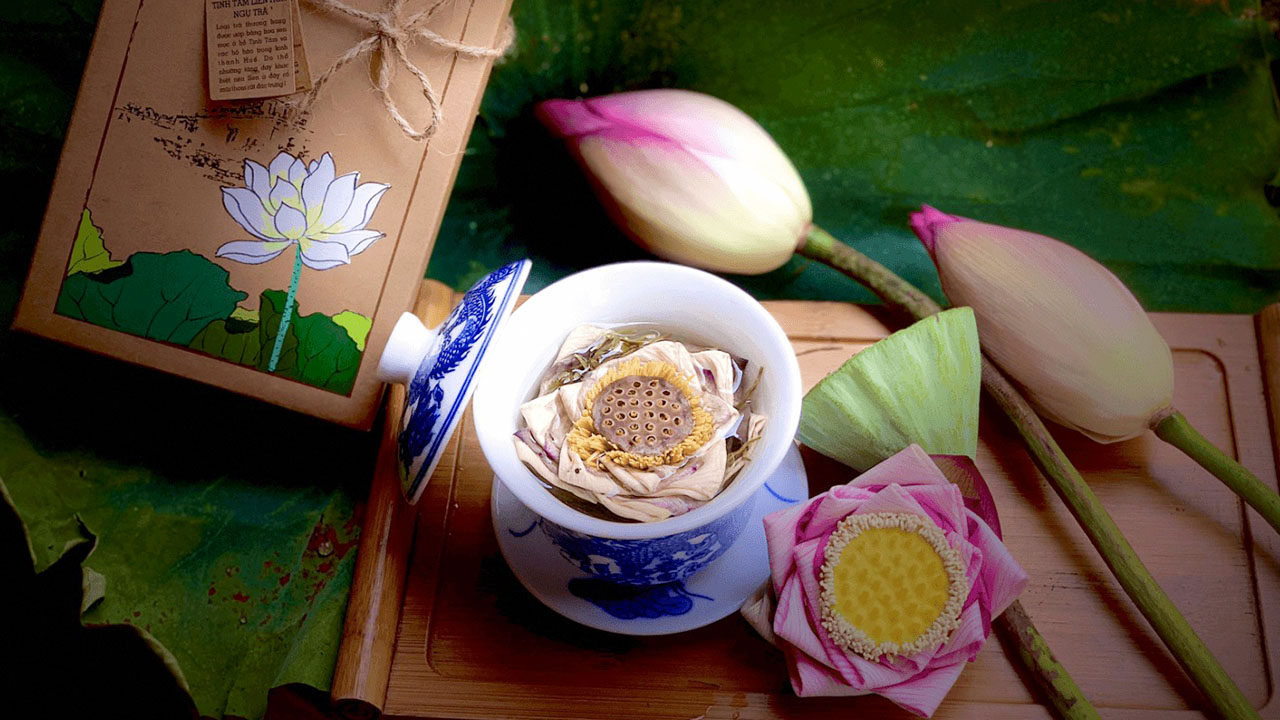
The practice of crafting lotus-scented tea holds a revered place in Vietnamese tea culture, embodying centuries-old traditions and an enduring connection with nature. Crafting this aromatic delicacy is an intricate process that demands meticulous care and artistry, symbolizing the deep-rooted cultural heritage associated with this revered beverage.
Vietnamese Tea Association: Guardians of Vietnam’s Tea Legacy
The Vietnam Tea Association (VITA) serves as a bastion for safeguarding and promoting the heritage of Vietnamese teas. It plays a pivotal role in advocating for the interests of tea growers, disseminating knowledge to consumers, and fostering a thriving ecosystem for the tea industry to flourish.
Embracing Tea with Purpose
In conclusion, Vietnamese tea culture encapsulates a tapestry of customs, values, and flavors that celebrate the art of tea. It serves as a testament to the cherished traditions and indelible legacy that have endured through generations. Whether relishing a soothing cup of green tea or partaking in the intricate rituals surrounding lotus-scented tea, the essence of Vietnamese tea culture lies in its ability to unite people, nourish the soul, and perpetuate a timeless tradition.
In this age of rapid modernization, Vietnamese tea culture stands as an enduring beacon, a reservoir of tradition, and a testament to the resilience of time-honored rituals and practices. As the world continues to evolve, the legacy of Vietnamese tea culture will undoubtedly endure, fostering connections, nurturing well-being, and transcending boundaries through the simple yet profound act of savoring a cup of tea.





